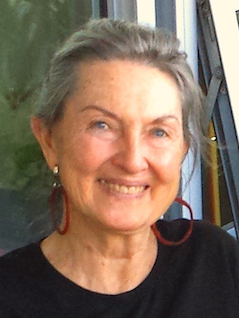Related Research Articles

Consumerism is a social and economic order in which the aspirations of many individuals include the acquisition of goods and services beyond those necessary for survival or traditional displays of status. It emerged in Western Europe before the Industrial Revolution and became widespread around 1900. In economics, consumerism refers to policies that emphasize consumption. It is the consideration that the free choice of consumers should strongly orient the choice by manufacturers of what is produced and how, and therefore orient the economic organization of a society. Consumerism has been criticized by both individuals who choose other ways of participating in the economy and environmentalists concerned about its impact on the planet. Experts often assert that consumerism has physical limits, such as growth imperative and overconsumption, which have larger impacts on the environment. This includes direct effects like overexploitation of natural resources or large amounts of waste from disposable goods and significant effects like climate change. Similarly, some research and criticism focuses on the sociological effects of consumerism, such as reinforcement of class barriers and creation of inequalities.

In Marxist philosophy, the term commodity fetishism describes the economic relationships of production and exchange as being social relationships that exist among things and not as relationships that exist among people. As a form of reification, commodity fetishism presents economic value as inherent to the commodities, and not as arising from the workforce, from the human relations that produced the commodity, the goods and the services.
In sociology, postmaterialism is the transformation of individual values from materialist, physical, and economic to new individual values of autonomy and self-expression.

Economic materialism can be described as either a personal attitude that attaches importance to acquiring and consuming material goods or as a logistical analysis of how physical resources are shaped into consumable products.
Ecopsychology is an interdisciplinary and transdisciplinary field that focuses on the synthesis of ecology and psychology and the promotion of sustainability. It is distinguished from conventional psychology as it focuses on studying the emotional bond between humans and the Earth. Instead of examining personal pain solely in the context of individual or family pathology, it is analyzed in its wider connection to the more than human world. A central premise is that while the mind is shaped by the modern world, its underlying structure was created in a natural non-human environment. Ecopsychology seeks to expand and remedy the emotional connection between humans and nature, treating people psychologically by bringing them spiritually closer to nature.
Self-determination theory (SDT) is a macro theory of human motivation and personality that concerns people's innate growth tendencies and innate psychological needs. It pertains to the motivation behind people's choices in the absence of external influences and distractions. SDT focuses on the degree to which human behavior is self-motivated and self-determined.

Anti-consumerism is a sociopolitical ideology. It has been defined as "intentionally and meaningfully excluding or cutting goods from one's consumption routine or reusing once-acquired goods with the goal of avoiding consumption". The ideology is opposed to consumerism, being a social and economic order in which the aspirations of many individuals include the acquisition of goods and services beyond those necessary for survival or traditional displays of status.
Freudo-Marxism is a loose designation for philosophical perspectives informed by both the Marxist philosophy of Karl Marx and the psychoanalytic theory of Sigmund Freud. Its history within continental philosophy began in the 1920s and '30s and running since through critical theory, Lacanian psychoanalysis, and post-structuralism.
Consumer capitalism is a theoretical economic and social political condition in which consumer demand is manipulated in a deliberate and coordinated way on a very large scale through mass-marketing techniques, to the advantage of sellers.
"Youth Marketing" is a term used in the marketing and advertising industry to describe activities to communicate with young people, typically in the age range of 11 to 35. More specifically, there is teen marketing, targeting people age 11 to 17, college marketing, targeting college-age consumers, typically ages 18 to 24, and young adult marketing, targeting ages 25 to 34.

Ariel Salleh is an Australian sociologist who writes on humanity-nature relations, political ecology, social change movements, and ecofeminism.
Cultural materialism in literary theory and cultural studies traces its origin to the work of the left-wing literary critic Raymond Williams. Cultural materialism espouses analysis based in critical theory, in the tradition of the Frankfurt School.
A goal or objective is an idea of the future or desired result that a person or a group of people envision, plan, and commit to achieve. People endeavour to reach goals within a finite time by setting deadlines.

The Paradox of Choice – Why More Is Less is a book written by American psychologist Barry Schwartz and first published in 2004 by Harper Perennial. In the book, Schwartz argues that eliminating consumer choices can greatly reduce anxiety for shoppers. The book analyses the behavior of different types of people. This book argues that the dramatic explosion in choice—from the mundane to the profound challenges of balancing career, family, and individual needs—has paradoxically become a problem instead of a solution and how our obsession with choice encourages us to seek that which makes us feel worse.
The six-factor model of psychological well-being is a theory developed by Carol Ryff that determines six factors that contribute to an individual's psychological well-being, contentment, and happiness. Psychological well-being consists of self-acceptance, positive relationships with others, autonomy, environmental mastery, a feeling of purpose and meaning in life, and personal growth and development. Psychological well-being is attained by achieving a state of balance affected by both challenging and rewarding life events.
Cultural differences can interact with positive psychology to create great variation, potentially impacting positive psychology interventions. Culture differences have an impact on the interventions of positive psychology. Culture influences how people seek psychological help, their definitions of social structure, and coping strategies. Cross cultural positive psychology is the application of the main themes of positive psychology from cross-cultural or multicultural perspectives.
Employee experience design is the application of experience design in order to intentionally design HR products, services, events, and organizational environments with a focus on the quality of the employee experience whilst providing relevant solutions for an organization.

Motivation and Personality is a book on psychology by Abraham Maslow, first published in 1954. Maslow's work deals with the subject of the nature of human fulfillment and the significance of personal relationships, implementing a conceptualization of self-actualization. Underachievers have a need for social love and affection, but a self-actualized person has these "lower" needs to be gratified and is able to pursue his or her own path towards self-actualization.
Historical materialism is Karl Marx's theory of history. Marx located historical change in the rise of class societies and the way humans labor together to make their livelihoods.
Climate psychology is a field that aims to further our understanding of the psychological processes that occur in response to climate change and its resultant effects. It also seeks to promote creative ways to engage with the public about climate change; contribute to change at the personal, community, cultural, and political levels; support activists, scientists and policy makers to bring about effective change; to nurture psychological resilience to the destructive impacts of climate change happening now and in the future.
References
- ↑ "Nine Scientists Share Their Favorite Happiness Practices". Greater Good. Retrieved April 26, 2023.
- ↑ Tom Crompton (August 2011). "Finding Cultural Values That Can Transform the Climate Change Debate". Solutions. Vol. 2, no. 4. Archived from the original on April 2, 2012. Retrieved April 26, 2023.